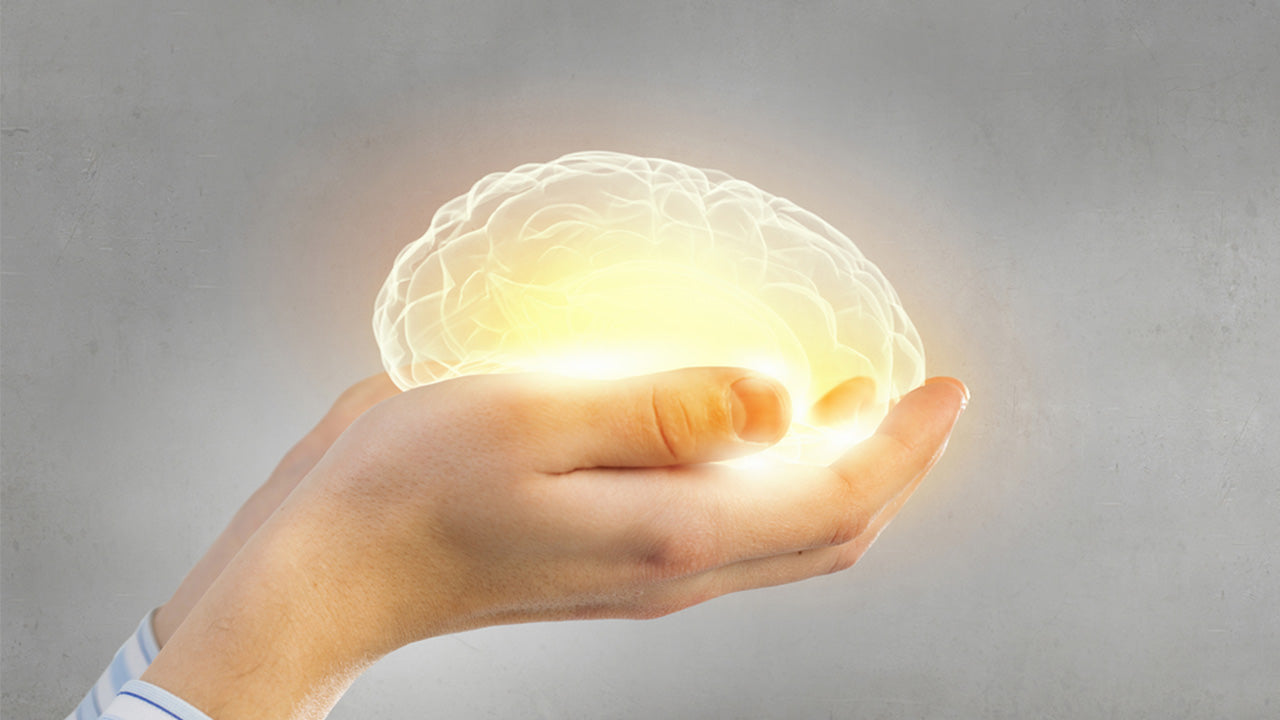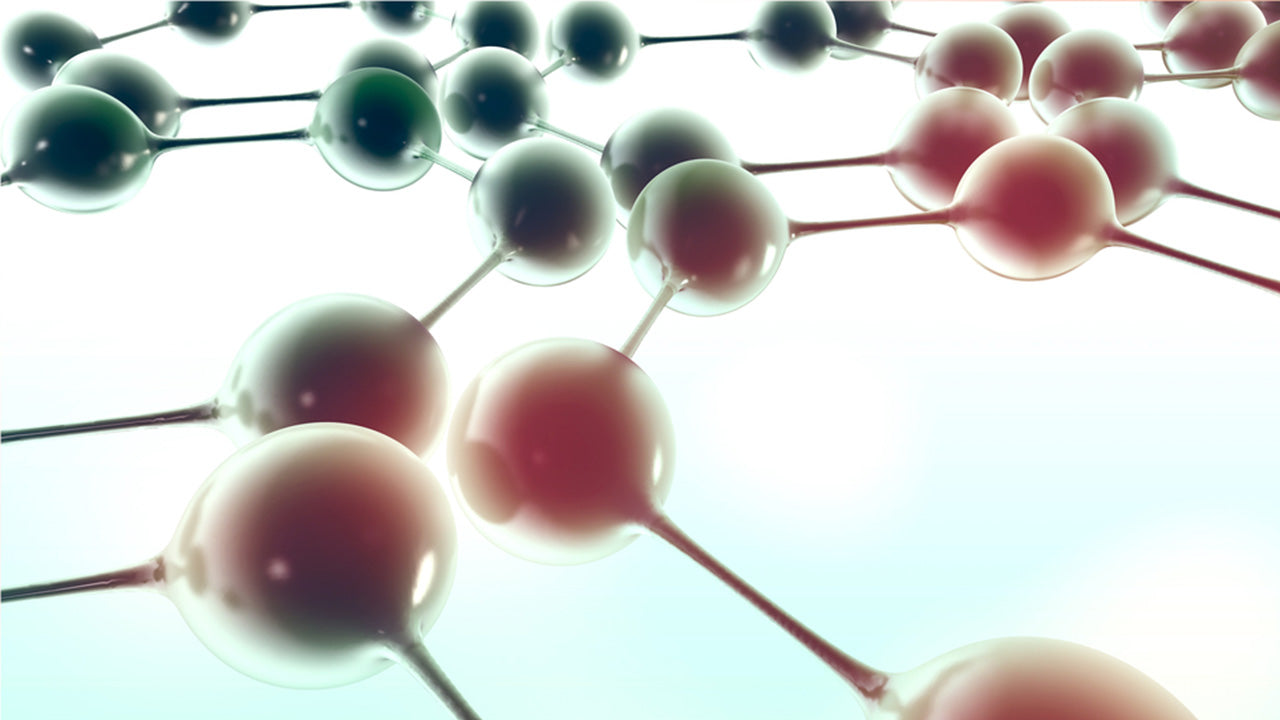What Does Science Tell Us About Amino Acids for Bipolar Disorder?
 By: by Amino Science
By: by Amino Science

Mental disorders, such as bipolar disorder, account for 4 out of the top 10 causes of medical disability in the United States, according to the Diagnostic and Statistical Manual of Mental Disorders (DSM). Typically, treatment for these conditions centers on the use of antidepressants, antianxiolytics, and other prescription drugs. While these medications can bring immense relief for some patients, others find they do not fully alleviate their symptoms, or worse, that they cause severe, intolerable side effects. This can result in high rates of noncompliance with pharmaceutical-reliant treatment plans. The risk of both suicide and institutionalization are much higher in patients whose bipolar disorder cannot be successfully treated with prescription medications, making it a high priority to identify effective alternative treatments, such as amino acids for bipolar disorder.
Researchers have found that amino acid supplements can be a valuable nutritional treatment for bipolar disorder, as well as other mental disorders, because the body converts them to neurotransmitters which can produce beneficial changes to brain chemistry.
Before examining the use of amino acids for bipolar disorder specifically, we'll cover some basic facts about amino acids and their connection to mental health.
What Are Amino Acids?
In the simplest technical terms, amino acids are organic compounds formed from an amino group (-NH2) and a carboxyl group (-COOH). Amino acids link together to form proteins, earning them the moniker "the building blocks for all life."
Perhaps the most crucial distinction to understand in relation to the different types of amino acids found in the human body is the one between essential and nonessential amino acids. Essential amino acids cannot be independently synthesized by the body, meaning it's essential that you get an adequate supply from your diet or from dietary supplements. Nonessential amino acids are every bit as essential to your health, however, the liver can manufacture them, meaning you don't need to think too much about your intake of these amino acids.
Our bodies use amino acids to build the proteins necessary for developing and maintaining our bones, muscles, organs, skin, and hair. Amino acids also actively regulate our nervous systems.

The Link Between Amino Acids and Mental Health
The body uses several amino acids either as precursors for neurotransmitters or simply as neurotransmitters, and levels of those amino acids can have a significant, and beneficial, impact on mental health.
If you'd like to gain a more nuanced understanding of the role of neurotransmitters, this article could serve as an excellent entry point. For the moment, however, the key aspect to grasp about neurotransmitters is that they're the chemical messengers your brain uses to communicate. Studies have shown that increases or decreases to the levels of specific neurotransmitters can cause symptoms of mood disorders such as bipolar disorder, major depressive disorder, and others.
Given the immense importance of the brain, the body has evolved a multi-layered defense system to safeguard it. One component of that system is the blood-brain barrier, a highly sensitive, semi-permeable membrane that envelops the brain and controls which substances are allowed to pass from the bloodstream into the brain.
Trials done with animal subjects indicate that the use of a substantial dose of an amino acid that either acts as a precursor for a neurotransmitter or as a neurotransmitter results in increased levels of the corresponding neurotransmitter in the brain. This suggests amino acids have the ability to cross the blood-brain barrier and directly influence brain chemistry.
It's important to note—and we'll return to this idea later—that while an increased intake of specific amino acids correlates to higher levels of specific neurotransmitters, supplementing with a single amino acid will likely not generate the results you hope for. That's because amino acids work synergistically, so your body must have a balanced supply of all 9 essential amino acids in order to fully utilize any of them, or of the 11 nonessential amino acids.
Prior to our analysis of findings to date on the use of amino acids for bipolar disorder, we want to ensure we're all working from a shared definition of bipolar disorder.
Defining Bipolar Disorder
Bipolar affective disorder, commonly abbreviated to bipolar disorder, was historically referred as manic depression. It's still sometimes referred to as bipolar depression. This psychiatric disorder is characterized by pronounced, sometimes intense, changes to mood, energy level, and ability to carry out daily tasks. Some patients experience frequent shifts from highs—acute mania—to lows—severe depression, while others may linger on one or the other end of the mood spectrum for longer periods of time.
Data collected by the National Institute of Mental Health (NIMH) shows that around 4.4% of adults in the United States will experience bipolar disorder at one time or another over the course of his or her lifetime. Experts have found that individuals with bipolar disorder typically have biochemical abnormalities in their brains, including:
- Hypersensitivity to acetylcholine
- Elevated levels of vanadium
- Anemia
- Vitamin D deficiencies
- Vitamin C deficiency
- Omega-3 fatty acid deficiencies
- Taurine deficiencies
Scientists have found that the hypersensitivity to acetylcholine can cause both depression and mania, while high vanadium levels have been linked to mania, depression, and melancholy. According to a double-blind, placebo-controlled trial, correcting underlying nutrient deficiencies can decrease manic symptoms and balance out mood swings.
How Amino Acids Influence Neurotransmitter Levels
Three amino acids have been clearly shown to contribute to the progression of bipolar disorder:
- Tyrosine
- Tryptophan
- Taurine
Tyrosine acts as a precursor to dopamine while tryptophan serves as the precursor for serotonin. Low levels of either of those key neurotransmitters have been shown to contribute to a depressed mood as well as a lower aggression threshold.
A deficiency of taurine, an amino acid that acts directly on the brain, producing a calming effect, has also been linked to symptoms of bipolar disorder. Low taurine levels seem to increase the number of manic episodes experienced by a person with bipolar disorder.
Key Findings on Amino Acids for Bipolar Disorder
While the idea of using amino acids to treat bipolar disorder might sound wholly a part of the realm of natural, alternative, complementary medicine, the truth is, the benefits of the conventional prescription drugs used to treat bipolar disorder may stem from their effect on amino acid neurotransmitters.
According to a study published in European Neuropsychopharmacology, two common prescription drugs used to treat bipolar disorder—lithium and valproate—both cause changes to amino acid neurotransmitter concentrations in the brain that may be connected to their mechanisms of action.
In an article written for Psychology Today, Dr. James Lake, an expert in integrative mental health care, examined the use of amino acids to alleviate mood swings, manic episodes, and other symptoms of bipolar disorder. Dr. Lake highlights the benefits of one particular amino acid, L-tryptophan, which studies have shown to be highly promising. According to Lake, taking between 2 and 3 grams of L-tryptophan up to 3 times daily can relieve anxiety linked to manic episodes in bipolar patients.
Research to date has focused primarily on the addition of L-tryptophan to bipolar depression treatment plans involving the use of conventional mood stabilizers such as lithium and valproic acid. In addition to relieving anxiety, findings indicate a particularly beneficial effect on insomnia and sleep quality. Taking 2 grams of L-tryptophan at bedtime decreased agitation for manic patients, allowing for better sleep. No concerning adverse effects have been reported in connection with that protocol. For bipolar patients experiencing severe insomnia, doses as high as 15 grams may be required—however, such a high dose should only be used with close supervision by a psychiatrist, Lake states.
Other amino-acid related supplement studies show 5-Hydroxytryptophan (5-HTP) has promise for the treatment of bipolar disorder. The body produces 5-HTP from tryptophan. 5-HTP acts as a precursor to the production of the always important neurotransmitter serotonin as well as melatonin, a hormone that regulates the sleep cycle. Researchers have found that, thanks to its ability to raise serotonin levels, 5-HTP can alleviate psychological and even physical manifestations of mental illness, such as:
- Irritability
- Low mood
- Poor sleep quality
- Chronic pain
- Impatience
It's important to speak with a trusted medical expert prior to taking 5-HTP supplements, as their interaction with certain prescription drugs as well as other supplements used to treat bipolar disorder may result in adverse effects.
Methionine, a sulfur-containing essential amino acid, has also been shown to have benefits for the treatment of bipolar disorder. When ingested, it combines with adenosine triphosphate (ATP) to generate S-adenosyl methionine (SAM-e), which has been investigated for its potential benefits relating to the treatment of depression, which is a component of bipolar disease. Per a randomized, double-blind clinical trial published in the Journal of Clinical Psychiatry, SAM-e can alleviate depression as well as the popular antidepressant escitalopram (sold under the brand name Lexapro).
It's important to keep in mind that the actions of a single amino acid are intimately interlinked with the actions of all amino acids. For this reason, supplementing with a single amino acid may not be the best way to access the benefits you desire. For instance, as a study published in Neuropsychopharmacology touches on, the large neutral amino acids, a group that contains tryptophan, tyrosine, and phenylalanine, all compete against one another for the use of the same blood–brain barrier transporter. Because of this, taking supplemental tryptophan can decrease concentrations of tyrosine, which in turn impacts the synthesis of dopamine, a neurotransmitter that plays a role in the presentation of symptoms of bipolar disorder as well as the treatment of bipolar disorder.
While the amino acids mentioned here, as well as in the preceding section, have the most pronounced impact on symptoms of bipolar disorder, experts in the field of amino acid research have found that the use of a high-quality essential amino acid blend produces far more desirable results than the use of a single amino acid supplement.
Conclusion
It's become inarguably clear that ensuring a consistent intake of the nutrients necessary for the production of neurotransmitters facilitates mental health and wellness. In fact, some individuals find that eating a diet high in amino-acid-loaded foods suffices as a treatment for bipolar disorder, major depression, and other mental illnesses. Others achieve more success combining nutritional therapy with conventional medications like prescription mood stabilizers.
Scientists have been interested in the role of nutritional therapies like the use of amino acid supplements for bipolar disorder since the 1970s. Unfortunately, securing funding for such research has proved to be an enduring challenge, as the pharmaceutical companies that often underwrite clinical trials see no appeal in treatment options they can't patent and own. This has led to the dominance of synthetic drugs, despite their known risk factors, such as sometimes intolerable side effects.
Unfortunately, this resistance has carried over to mainstream clinicians, who tend to know less about nutritional treatment options for bipolar disorder, and therefore are far less likely to prescribe them. Some also feel hesitant about recommending treatments that aren't governed by the Food and Drug Administration (FDA). This can prevent individuals from accessing nutritional therapies that may be significantly more efficacious for their personal neurochemistry than more readily available prescription drugs.
Hopefully, as more patients become independently aware of the possibilities offered by nutritional supplements, health care providers will respond by becoming better versed in how to incorporate those modalities into an overall mental health treatment plan. Already, there's been an uptick in the number of studies investigating natural and holistic treatment options for bipolar disorder and other conditions, which should help clinicians increase their knowledge base and comfort level with the potentialities of this realm.
In the meantime, outside research as well as the seeking out of medical experts who have already integrated such options into their practice may be exceptionally valuable for individuals with bipolar disorder who have yet to find a satisfactory treatment option.

Up to 25% off Amino
Shop NowTAGS: benefits
Join the Community
Comments (0)
Most Craveable Recipes




 833-264-6620
833-264-6620



















